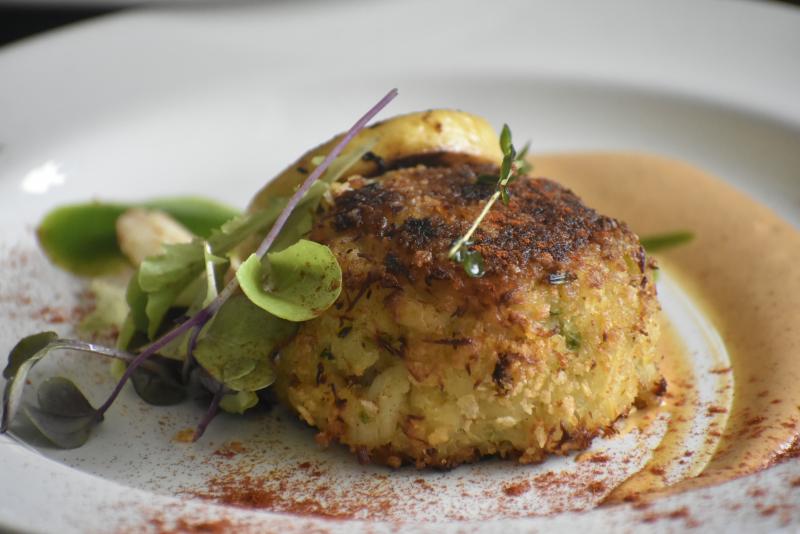
General Mills executives knew last week would be a newsy one, but not in the way it turned out.
The company's planned announcements of a corporate transaction and quarterly earnings were overshadowed by a viral social media episode with one of its top-selling cereals, Cinnamon Toast Crunch, at the center.
It started Monday when Jensen Karp, a Los Angeles comedy writer, posted on Twitter a picture of what appeared to be sugarcoated shrimp tails from his box of Cinnamon Toast Crunch. His modest fame helped elevate the post.
From there, General Mills was in the social media minefield that has trapped many companies. Customer service problems, especially ones that normally take time to investigate, can quickly go viral on social media and work their way into click-hungry news publications.
By Tuesday, the New York Times had joined other outlets amplifying Karp's complaint and the initial public reaction from General Mills, in which the company said on Twitter that what Karp thought were shrimp tails appeared to be "an accumulation of the cinnamon sugar that sometimes can occur when ingredients aren't thoroughly blended."
Social media influencers breathlessly documented the play-by-play between the comedian and the company. The event led to a frenzy on Twitter, Instagram and TikTok where jokes abounded, like a reworked General Mills logo that replaced "Mills" with "Krills" and images of cereal boxes renamed "Cinnamon Toast Crustaceans."
For Golden Valley-based General Mills, one of its best-known products was getting enough negative attention to pose a risk to its reputation.
"There is potential for this thing to become worse than it is right now," said Akshay Rao, a marketing professor at the University of Minnesota. "The fundamental issue is consumers might lose trust in your brand and your product."
Anything related to contaminated items near the body — be it food, clothing or cosmetics — creates an inherent "disgust aversion," Rao said.
Rao said the company made a mistake with the "accumulation" statement because it suggested Karp was wrong. "That is a very, very bad choice," Rao said. "The customer is never wrong."
In an e-mail Tuesday night, Karp said he was frustrated no one higher up at the company had yet reached out to him. He said it was unfair that staffers on the company's social media team had to be the company's face. The speed at which a social media post can spread makes these customer-facing decisions more critical. Corporations have dedicated social media managers with varying levels of responsibility and pressure.
The airline industry, for instance, is one where the customers are constantly airing their grievances on social media. The airline's social media employees respond to these complaints around the clock to both allay their customers' travel discomforts, but also protect its brand's reputation.
The "Cinnamon Toast Shrimp" situation quickly rose up the chain of command at General Mills. On Wednesday, the day the company announced its quarterly results, chief executive Jeff Harmening knew all about it and was prepared to address it.
"We take food safety very, very seriously, whether it is this case or it is others before it," Harmening told the Star Tribune that day.
"We are confident, given the nature of what we see, that this didn't take place in our manufacturing facility, but it still leaves open the question of what exactly happened and that's what we are trying to investigate," he said.
Because Karp sent images of tape over the cereal bag and the presence of string or dental floss, the company suspects the cereal was tampered with after it left its production facility. Food manufacturers are highly regulated on food safety, with those as large as General Mills having their own extensive protocols and teams dedicated to ensuring a safe supply chain.
Since 2017, the U.S. Food and Drug Administration (FDA) has initiated dozens of food recalls with foreign objects, such as pieces of metal or plastic, and others related to "extraneous animal matter" or "extraneous material" found in food products.
So far, the shrimp saga appears to be an isolated event. The FDA has not received any consumer complaints related to shrimp remnants found in Cinnamon Toast Crunch.
If it turns out that Karp's clusters are shrimp tails that did not originate at the General Mills factory, it's ultimately on the company to smoke out where the tampering occurred, said Rao. "To the extent that someone is tampering with your product," Rao said, "it's your product that you have to defend and protect."
By Wednesday, the new conversation on social media had changed. Karp went silent on social media after a number of women publicly accused him of past emotional abuse and others in the L.A. creative class relayed allegations of intellectual property infringement and other questionable professional conduct.
Karp did not respond to follow-up e-mails on Thursday and Friday.
His last post on Wednesday suggested he was working with General Mills to send in samples of the supposed shrimp tails for testing via courier. General Mills said in its latest statement Thursday that it was working with Karp to obtain samples, "conduct a thorough investigation and take appropriate next steps."
On Thursday, the viral moment appeared to be nearing its end. One person summed up on Twitter: "Twitter is wild. One second we're all appalled by shrimp tails in cereal, the next we're exposing that same guy for being an abuser. Amazing. Never change y'all. We are judge, jury, and executioner."
Kristen Leigh Painter • 612-673-4767
The Link LonkMarch 27, 2021 at 08:02PM
https://ift.tt/3lVAuvk
General Mills takes trip through social media grinder after man claims shrimp tails in cereal - Minneapolis Star Tribune
https://ift.tt/3eNRKhS
shrimp

No comments:
Post a Comment